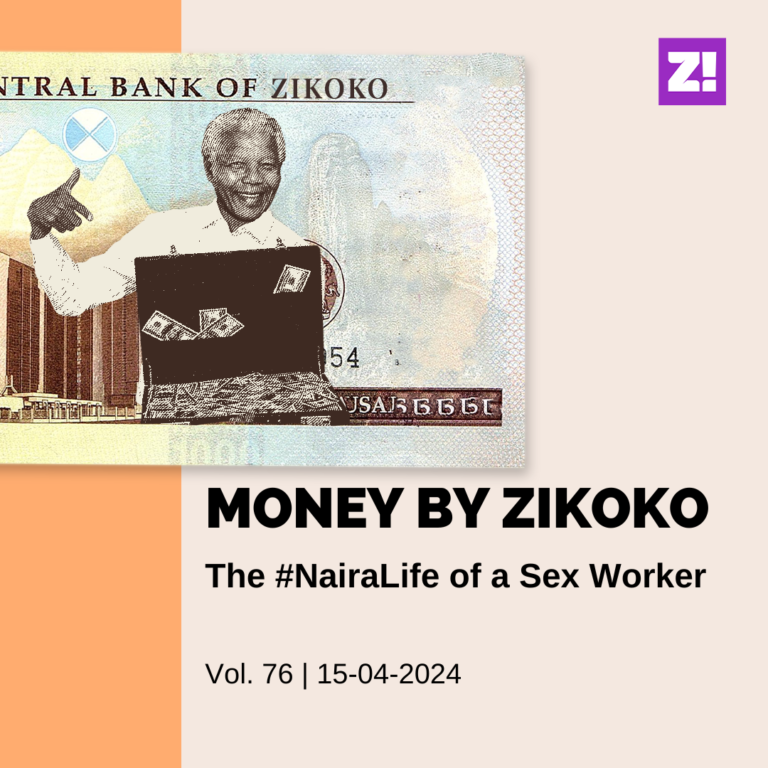Students in Nigerian universities have stories to tell, but hardly anyone to tell them to. For our new weekly series, Aluta and Chill, we are putting the spotlight on these students and their various campus experiences.
For students at any of the government-owned universities across the country, ASUU and NASU strikes are a big part of their experiences. The staff unions are always in disagreements with the federal government, leading to strikes that sometimes go on for months. No one feels this avoidable break in academic activities more than the students who are directly affected, so I thought to speak to a couple of university students. They talk about the most memorable strike they’ve experienced and everything that came with it.
Ewoma, Female, University of Lagos

It was a Monday in 2018 and I was in 200 Level. Word was that NASU was going on strike, but nobody thought a NASU strike would spell disaster. I had a class at noon, which I went to, but the main entrance to the faculty was locked. I’ll admit that I was excited because it was the middle of the semester and I thought I could use a break from classes. My class held, but it was not the best experience. Even the lecturer decided that he’d seen enough and ended the class before the hour mark.
When it was 6 PM and they didn’t restore power to the hostels or anywhere else, we realised that we might be in trouble. No power meant no water, and that was usually the start of a big struggle. Also, we couldn’t stay in our rooms — the heat and mosquitoes were a deadly combination.
Many people in the hostel were forced to sleep outside. The situation took a turn for the worse the following morning. Water had stopped running in the hostels, so the toilets were unusable. Besides, the pungent smell of spoilt food made the air unbreathable.
The strike lasted for a week and it was one sad story or the other. We watched helplessly as our food supply went bad. Pretty much everyone had to spend more money on food. I felt a lot of things during the long week, but the strongest emotion was anger. I understood that NASU had a beef to settle with the federal government, but why did they have to do us dirty to make a point?
Praises, Female, University of Nigeria

It started with the rumours. But nobody thought it was going to happen — ASUU was always threatening to go on strike. Even when the rumours gained momentum, everyone I knew didn’t think there was something there.
We were wrong. I was in the middle of a lecture one day when three men walked into the class. They said: “We’re sorry to disturb you, but we’re embarking on a nationwide strike.” They were polite but firm. That was the end of the lecture and the beginning of my first experience with ASUU strikes. It was funny because they still managed to surprise us, even though there were tell-tale signs.
However, there were fears that the lecturers in my school wouldn’t obey the directive to suspend academic activities, so I didn’t go home immediately. I suspected that lecturers would continue classes and those were perfect situations for impromptu tests and whatnot. I spent two long weeks at school. Unfortunately, I was broke and I hardly had any food. I got sucked into a routine of waking up, eating cornflakes and going back to sleep.
In the middle of it, I thought a lot about my life choices and other options I could have taken — like why couldn’t I have gone to a school abroad? Why did I use the last ₦1000 I had to renew my data subscription? — you know stuff like that.
I was so frustrated about all of it. Not sure what the underlying reasons were, but I couldn’t shake it off. In the end, the coronavirus pandemic hit the country and the federal government directed the closure of schools across the country. There were no concerns about classes anymore, so I packed my stuff and went home.
Anana, Female, University of Uyo

School had just resumed and I was about to start my second year at the university when ASUU went on this strike — I don’t even remember what it was about anymore. The last place I wanted to go was my parent’s house. Not like I hated home, but I had lived at the estate since I was 7. Going to school was my first real chance at freedom, and it sucked to have it taken away from me.
To make things worse, my siblings were not at home, so it was just me. I picked up sewing to pass the time, but there was only so much it could do for me. My apartment at school had become my safe space and it felt like I had been robbed of it. I realised how tired I was of the entire thing when it got to a point where I would have given anything to be in a room filled with students and lecturers. At the peak, I felt my brain was dying from inactivity.
The only decent thing I got out of the experience was that I got closer to one of my sister’s friends. It was nice having someone close to talk to. But that was it. Everything else was a disaster. The strike lasted for about 3 months before they called it off.
Tochukuwu, Male, Nnamdi Azikiwe University

Earlier this year, my school declared a lecture-week free in preparations for the convocation ceremony, and I went home. I was preparing to return to school when I heard that the rift between the Federal Government and ASUU over the IPPIS payment system had gotten to a head. ASUU had kicked against the implementation of the system, but the FG went ahead with it. I guess it was fight-or-flight for ASUU because they went on a 2-week warning strike. It didn’t make sense to return to school, so I stayed back.
Before the warning strike ran its course, the pandemic hit, forcing everything to a standstill. It’s been about 6 months now and I’m not sure if ASUU is ready to go back to work even if the FG okays resumption of schools.
I don’t think I mind, though. I’ve been more productive since I’ve been at home. With school, there was always the urgency to keep up with academic stuff. But that’s not something I have to deal with now, and this has given me quite a bit of time to focus on other things I’m interested in.
Ayodele, Male, University of Ibadan

Since I started studying at the university, there have been at least two strikes every session. The incessant interruption of the school calendar has always been annoying. For reasons that I can’t control, my stay in school keeps getting longer.
A couple of months ago, at the end of the second semester of my third year, NASU went on strike in the middle of exams. However, the exams went on. They wanted to make their industrial action more effective, so NASU members crippled the school’s public transport system, forcing the cab drivers to stop working— there were no cabs and everybody in the school community had to walk to wherever they were going. This went on for a month before they called it off.
NASU had just called off their strike when ASUU went on theirs. And the strike is still on, even though schools across the country are currently closed. Now, I’m not sure if I’m still in 300 level or final year. This is frustrating as the plan was to finish university in 2020. That’s impossible now, and if this keeps happening, 2021 might be out too. I’ve felt a lot of things, but right now, I feel indifferent. I’m totally over it.
Are you currently studying in Nigeria or elsewhere and have a story to share about your life in school? Please take a minute to fill this form and we will reach out to you ASAP.
Can’t get enough Aluta and Chill? Check back every Thursday at 9 AM for a new episode. Find other stories in the series here.




